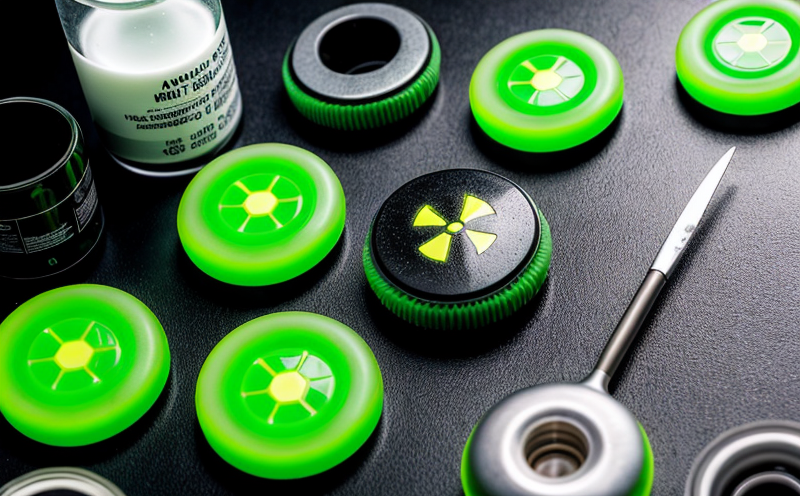EN 18976 Radon Contaminant Detection in Bottled Water
The European standard EN 18976 outlines stringent guidelines for the detection of radon contamination in bottled water. This standard is crucial as it ensures that consumers receive safe and quality-controlled bottled water products, free from radioactive contaminants such as radon gas.
Radiation can enter drinking water through various pathways, including leaching from containers or soil, and may pose health risks if not properly controlled. The presence of radon in bottled water is particularly concerning because it decays into more harmful substances like polonium-218 and polonium-214.
Our laboratory adheres meticulously to the requirements specified in EN 18976, employing advanced analytical techniques such as alpha spectrometry and high-purity germanium detectors. These methods allow us to detect even trace levels of radon and its progeny within bottled water samples with precision.
The testing process begins with rigorous sample preparation, ensuring that the water is representative of the entire batch or lot. This includes filtering and diluting the sample if necessary, followed by introduction into a specialized measuring chamber for accurate analysis.
Our team of experts ensures compliance with all aspects of EN 18976, from sampling protocols to final reporting. We use state-of-the-art equipment that meets international standards such as ISO/IEC 17025, ensuring accuracy and reliability in every test conducted.
The results are reported according to the guidelines set forth by EN 18976, providing clarity on whether the radon concentration falls within acceptable limits. This information is invaluable for manufacturers looking to maintain high standards of quality and safety in their products.
By adhering strictly to this standard, we help ensure that bottled water remains a safe choice for consumers worldwide. Our commitment to precision and thoroughness sets us apart as leaders in this field, delivering reliable data that contributes significantly to public health and well-being.
Benefits
- Compliance with international standards ensures consumer safety.
- Avoidance of potential legal issues by meeting regulatory requirements.
- Enhanced reputation among clients and stakeholders through quality assurance.
- Access to detailed reports that can inform product development decisions.
- Reduced risk of recall or market withdrawal due to contamination concerns.
Eurolab Advantages
Eurolab’s expertise in environmental and food testing is unmatched, providing unparalleled service excellence. Our highly trained professionals are committed to delivering accurate results consistently across all projects.
We offer comprehensive support throughout the entire process, from initial consultation through final analysis and reporting. Leveraging our vast experience and cutting-edge technology allows us to meet even the most stringent specifications required by international standards like EN 18976.
Our commitment extends beyond just meeting compliance requirements; it includes offering valuable insights into trends and best practices within your industry. With Eurolab, you gain much more than just a testing service—you receive strategic advice tailored specifically to your unique needs.
Competitive Advantage and Market Impact
Earning certification for adherence to EN 18976 demonstrates a company's dedication to producing safe bottled water. This commitment translates into tangible benefits, including enhanced brand reputation and increased customer trust.
By ensuring compliance with this standard, businesses can differentiate themselves from competitors by offering superior product quality. Such initiatives also contribute positively towards sustainable business practices, aligning closely with current global trends favoring eco-friendly products and services.
The implementation of rigorous testing protocols like those outlined in EN 18976 helps maintain consistent standards across different regions, fostering trust among international partners and customers.
Ultimately, embracing these stringent measures reflects a forward-thinking approach towards safeguarding public health while promoting responsible business practices. Companies that adopt such policies are better positioned to thrive amidst evolving market dynamics and regulatory landscapes.





